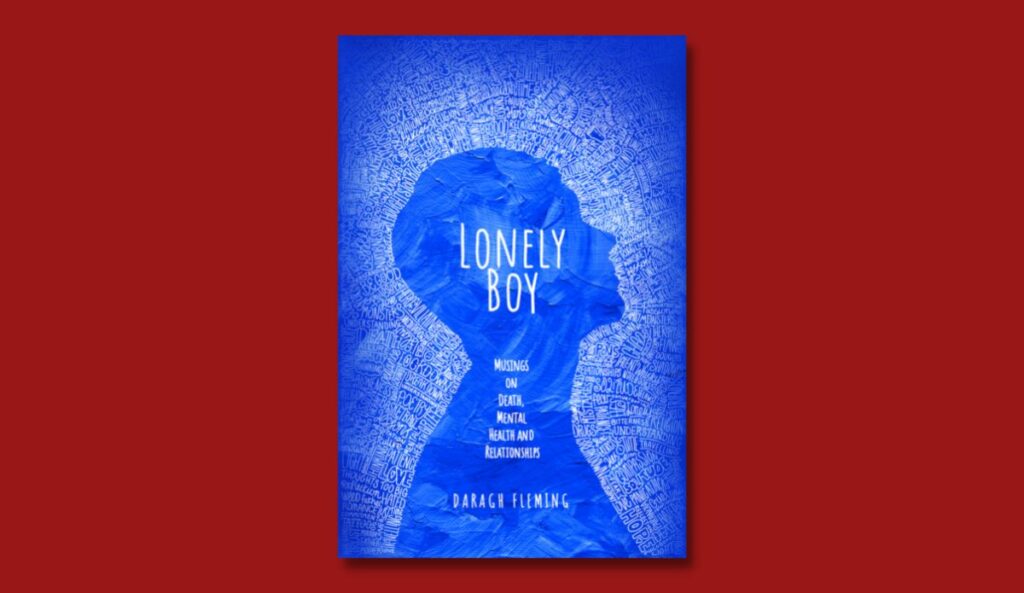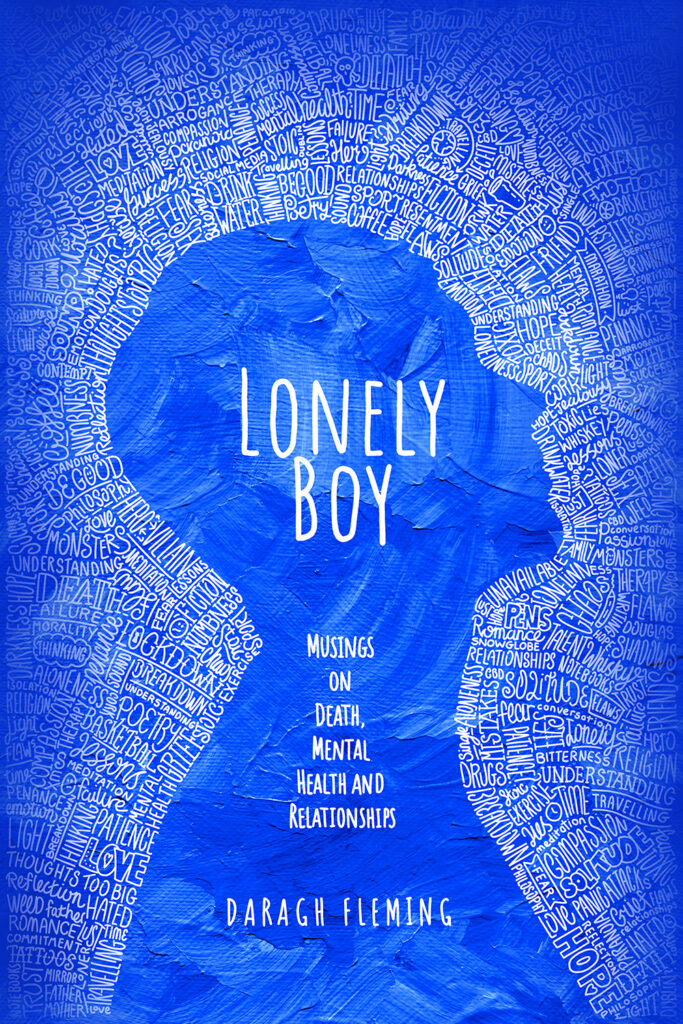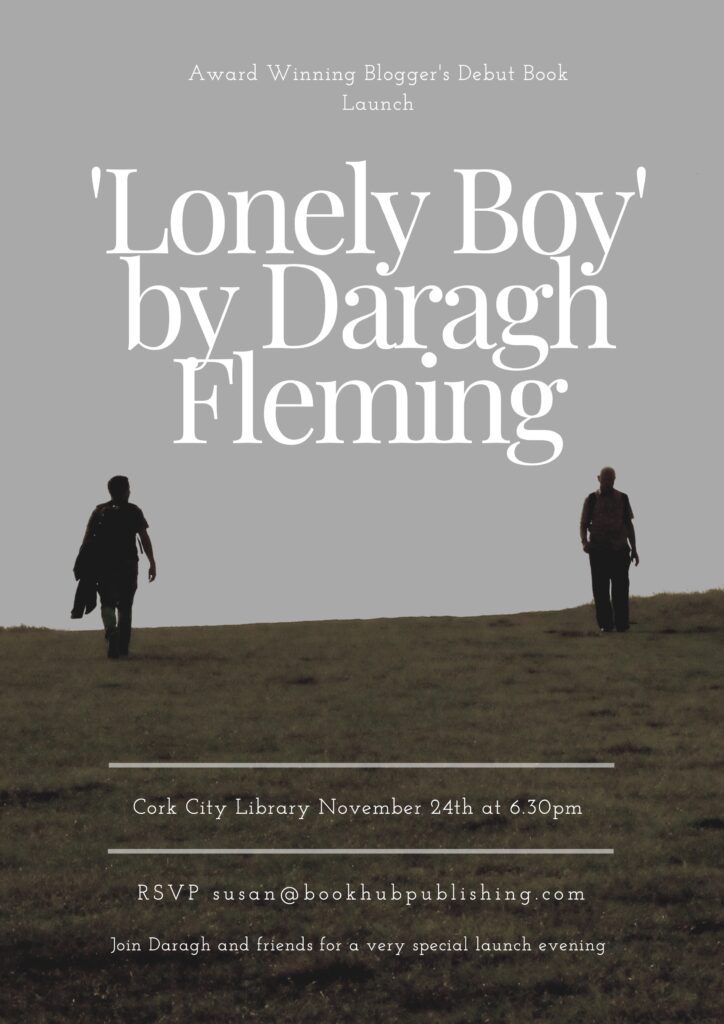
Lonely Boy: Musings on Death, Relationships and Mental Health|Daragh Fleming|Bookhub Publishing|€19.99
“To find peace, we have to get to a point where the life we currently live is enough for us to be happy.”
Extract from Sunlight Through The Curtains
Many of us don’t allow ourselves to be happy until some arbitrary point in the ‘future’ which, of course, never arrives.
We say things like, “I’ll be happy when I get this job,” or, “I’ll be happy when I get this house”, or, “Once I have this much money I’ll be happy.” It’s never ending.
The goalposts are constantly moving onto the next unattainable desire. When we exist like this, we’re guaranteeing to ourselves that we’ll never really and truly be happy. There’ll always be something else to achieve, or something else to buy. There is no upper limit when we view happiness like this. This is no way to attain satisfaction.
To be genuinely happy you have to find a way to appreciate that which you already have. This is wisdom that’s been passed down through the centuries, from the times of Marcus Aurelius to the present day:
“Do not indulge in dreams of having what you have not, but reckon up the chief of the blessings you do possess, and then thankfully remember how you would crave for them if they were not yours.”
To find peace, we have to get to a point where the life we currently live is enough for us to be happy. I think we know this subconsciously, but it’s a very hard mindset to actively engage in, because we find it difficult to not want more.

Our world is often one shaped by individualist thought; think about the world with yourself at the centre, chase individual achievements, ambitions and desires. This culture of ours breeds innovation and mind-blowing progress, but it also instils a sensation of being on a treadmill, where nothing will ever be enough. Where there will always be more needed doing in order to attain this arbitrary happiness.
I’ve always felt like I’ve been looking in on my life from the outside, as if it were a snow globe. I could see the moments passing by like blurry snowflakes, but I never found a way to engage them.
It’s never felt like I ever got the hang of what came so naturally to others. Over the years, I’ve watched as people found happiness right in front of them. I’ve seen people find good relationships, and create lives that bring them joy. I’ve watched as people got on with their lives whilst I continued to feel stuck.
There has been a certain effortlessness to the way people live that I have been unable to fully understand. It has never felt like I could make things work so well, and for it come to me so naturally. I’ve always been searching for more, and it’s always felt like being present and happy in my life takes far more effort than it does for others.
I’ve wondered over the past few years why I couldn’t just be happy with what I have right now like most people can. It’s why I wrote this book. I’ve been trying for as long as I can remember to break into my own life and actually live it. I’ve been watching myself from the other side of the glass, critiquing my every move, and shouting abuse at myself whenever I make even the smallest mistake. I’ve been the voice telling me all the awful things I’ve believed about who I am, and at a certain point you have to cut ties with that voice.
For most of my adult life (I’ve only been an adult for a decade or so!) I’ve told myself quietly and firmly that happiness isn’t something I deserve.
I was never good enough for happiness, like I was too bad to deserve it. I’m still not certain where this stems from, but I do know that it is a pertinent part of why low mood, and loneliness have been my defaults – I believed that a lonely existence was the only existence I was entitled to.
In The Merchant of Venice, Antonio says that the world is “a stage where every man must play a part, and mine a sad one.” Somewhere in me, that resonated when I read it all the way back at age fifteen, and it somehow became true – in my head at least – that my role must also be the sad one.
There was no way around it, and for so long stints of happiness have always been out of reach and out of question. I confirmed my own prophecy over the years, as each stint of loneliness became evidence that I was destined to be this way.
It’s been a challenge to address this and come to terms with it. It’s something I’ve never told anyone, really. I’ve been working against myself for almost a decade, ensuring that I would never draw consistent happiness from anything.
Up until now I haven’t given myself permission to be happy.
Happiness has always been something only other people deserved. This subconscious belief has led to many acts of self-sabotage. Again, and again I have ruined good things for myself, things that would have brought me happiness if I let go of the fears, and allowed myself to live without guilt. I’ve thrown away relationships. I’ve acted destructively. I’ve been toxic.
All as a result of this idea, this whisper in the night, that I do not deserve to be happy. But why has some hidden part of me believed that I don’t deserve happiness? That’s a tricky question to answer.












